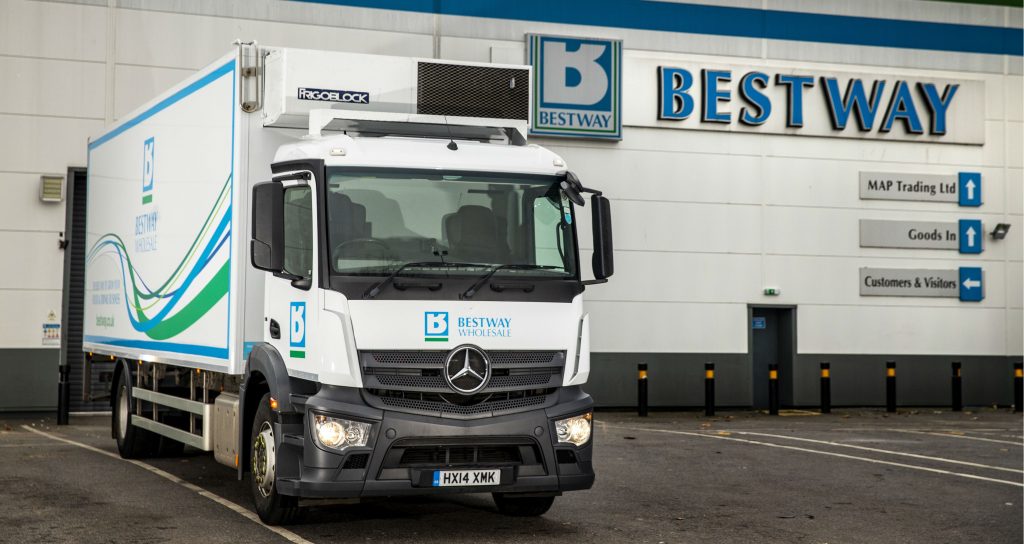Speaking at yesterday’s Drinks at Home trade show, held at the Exhibition Centre Liverpool, Bestway Retail director Mike Hollis said franchise sales at its Bargain Booze stores were up 9% to almost £75m during the three months to the end of September when compared with the same period in 2019, prior to the pandemic.
Sales of beers, wines and spirits were 5% ahead, “despite supply chain issues”, he added.
Hollis said availability for Bargain Booze retailers was running at about 90% to 91%, whereas some competitor wholesalers had seen weeks where availability fell as low as 60%.
Normally, Bargain Booze would be disappointed if availability fell below 96%, Hollis said.
“I wouldn’t say we were pleased with being in the 90s, but when you compare that with the rest of the market, we are quietly satisfied.”
Bestway Wholesale managing director Dawood Pervez said availability across the group as a whole had never fallen below 89%.
never fallen below 89%.
“It’s because we deliver from a variety of locations and therefore we’re not exposed to one thing going wrong at one location,” he told Independent Retail News.
“We have got stock at 25 locations and if we have problems at one location, we can do a branch transfer.”
Further factors working to Bestway’s advantages included:
- Better staff retention than among HGV drivers as a whole, because Bestway’s delivery model means they do not have to spend nights away from home.
- A big push last year to a “drop and drive” system whereby drivers use roll-cages to shift product from the lorry into the shop instead of having to manhandle individual cases. The new system had made the process more efficient and also made the work easier for hard-pressed drivers.
Pervez said Bestway had been forced to increase wages for drivers at some depots “depending on the local jobs market” but this would eventually push up costs across the group.
He is also concerned about general cost increases, with food price inflation set to hit 4% to 5% by the end of the year.
“The real concern is PMPs, where we’ve got a capped margin,” Pervez said. Some of these could be hard to increase, especially ‘round-pound’ prices, which might need to stay where they are.
“Suppliers have to think about their pricing structure. I would urge them to do that because convenience is where the growth is going to be.
“I suggest they remove some of the investment in the large packs in the big stores, take it out of the big fat multi-packs and pump it into convenience packs, because that’s where the growth is.
“It’s time suppliers rebalanced the price differential between convenience and the large stores.
“Convenience is no longer just about distress or impulse-only purchases.”
 Talking Retail Grocery and product news for independent retailers
Talking Retail Grocery and product news for independent retailers






